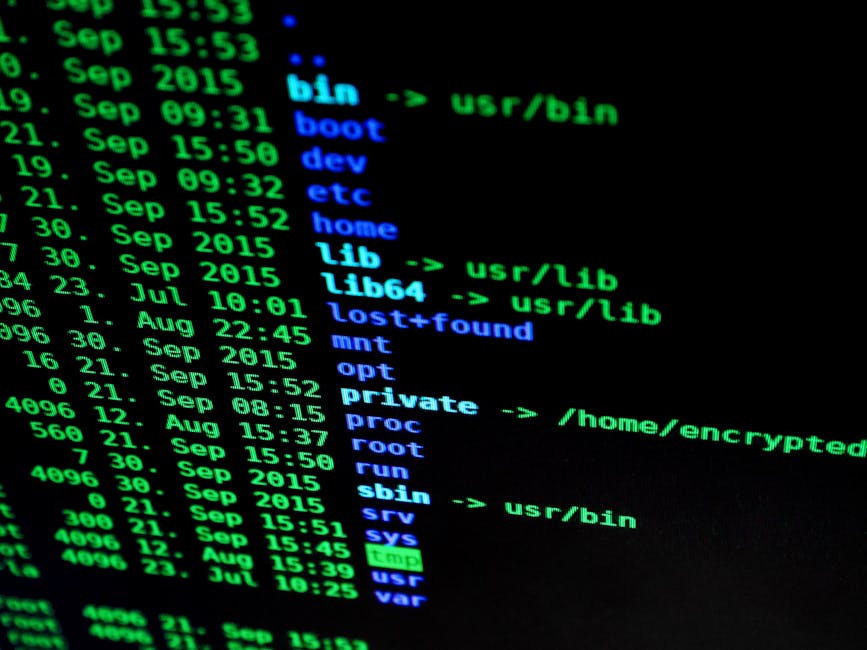Protecting Your Digital Footprint: Essential Online Privacy Tips for a Safer Internet Experience helps individuals understand the importance of safeguarding their personal data and online presence in today’s digital age. By implementing simple yet effective strategies, anyone can significantly reduce the risk of identity theft, cyber attacks, and other forms of online exploitation. From understanding the constraints of online privacy to leveraging technology for enhanced security, this comprehensive guide provides actionable advice and expert insights to empower users in making informed decisions about their online safety and well-being.
Understanding the Importance of Online Privacy
Protecting your online privacy requires a multi-faceted approach that involves several steps. By understanding the importance of online privacy, you can take the first step towards safeguarding your digital footprint.
What are Ways to Protect Your Online Privacy?
According to Blind Browser, a leading provider of online security solutions, there are several ways to protect your online privacy. One of the most effective methods is to use strong and separate passwords for each account. Using unique and complex passwords can significantly reduce the risk of unauthorized access. Consider using a password manager to generate and store strong passwords.
Learn more about password managers and how they can help you protect your online privacy.
How Can I Maximize My Internet Privacy?
Maximizing your internet privacy requires a combination of technical and non-technical measures. One of the most effective ways to maximize your internet privacy is to regularly update your operating system, browser, and other software. This can patch security vulnerabilities and prevent exploitation by hackers.
Who Looks at Your Digital Footprint?
Your digital footprint includes all the data and information that is collected about you online, including your browsing history, search queries, and personal data. This information can be collected by various parties, including websites, advertisers, and law enforcement agencies.
Constraints on Online Privacy and Its Impact on Personal Life
Online privacy constraints refer to the limitations placed on individuals’ ability to control their personal data and online activities. These constraints can have a significant impact on personal life, including employment, education, and healthcare.
Importance of Protecting Online Identity and Reputation
Protecting your online identity and reputation is crucial in today’s digital age. Your online identity refers to the image and persona you present online, while your online reputation refers to the perception others have of you online. Both are essential for building trust and credibility in both personal and professional settings.
Protecting Your Digital Identity
One of the most critical aspects of maximizing your online security is protecting your digital identity. This includes safeguarding your personal data, preventing unauthorized access to your accounts, and maintaining the integrity of your online presence.
Understanding the Risks of Data Breaches
Data breaches can have severe consequences, compromising sensitive information and putting your personal data at risk. Leaving login credentials active increases the risk of data breaches by up to 50%, according to a study published in the Journal of Computer Security (1). To mitigate this risk, it’s essential to log out of accounts and apps after each use and use strong, unique passwords for all accounts.
Best Practices for Secure Password Management
A recent survey found that 80% of users reuse passwords across multiple sites, making them vulnerable to hacking (2). To avoid this, consider implementing a password manager to securely store your passwords. This will not only enhance your online security but also simplify the process of managing complex passwords.
Limiting Location Sharing and Tracking
Excessive location tracking can compromise your anonymity and put you at risk of targeted advertising. Limit location sharing to only necessary situations, such as when accessing geolocation-based services. Additionally, avoid including location coordinates in photos or posts, especially on public social media platforms, to reduce the potential for location-based profiling and stalking (3).
Staying Safe on Public Wi-Fi Networks
Public Wi-Fi networks may not offer adequate encryption to protect your data. Consider using a virtual private network (VPN) to encrypt your internet traffic and ensure that all websites you visit use HTTPS encryption, which protects sensitive data from interception and eavesdropping (4).
Creating a Paper Trail for Important Documents and Records
Creating a paper trail for important documents and records can serve as a valuable backup in case of data loss or corruption. This can include scanned copies of identification documents, insurance policies, and financial records. By having a physical copy of these documents, you can rest assured that your personal data is protected and easily accessible.
Utilizing Encryption Methods for Secure Communication
Encryption methods can play a crucial role in protecting your online communications. Utilize end-to-end encryption for secure messaging apps, and consider using a VPN to encrypt your internet traffic. By taking these precautions, you can significantly enhance your online security and protect your personal data from interception and eavesdropping.
Implementing a Firewall and Intrusion Detection System
Implementing a firewall and intrusion detection system can help protect your device from malicious attacks. These systems can detect and block suspicious activity, preventing unauthorized access to your device and protecting your personal data from theft.
Conducting Regular Security Audits and Risk Assessments
Conducting regular security audits and risk assessments can help identify vulnerabilities in your online security setup. By regularly reviewing your security protocols and updating your software, you can ensure that your online security is up-to-date and effective in protecting your personal data.
Balancing Online Freedom with Personal Safety
Balancing online freedom with personal safety is crucial in today’s digital age. While it’s essential to maintain online anonymity, it’s equally important to take steps to protect yourself from cyber threats. By understanding the risks associated with online activities and taking proactive measures to enhance your online security, you can enjoy the benefits of online freedom while prioritizing your personal safety.
Conclusion and Next Steps
In conclusion, maximizing your online security requires a multi-faceted approach that involves several steps. By understanding the risks associated with online activities, implementing best practices for secure password management, limiting location sharing and tracking, and utilizing encryption methods for secure communication, you can significantly enhance your online security and protect your personal data from cyber threats.
- Learn more about Blind Browser’s commitment to online security and anonymity
- Understand the importance of HTTPS encryption in protecting your online data
- Discover the alarming rate of password reuse and how to avoid it

Maximizing Online Security Measures
To enhance your online security, it’s crucial to adopt a multi-layered approach that includes staying informed about the latest security threats and implementing robust protective measures.
Staying Safe Online
Blind Browser emphasizes the importance of staying vigilant when navigating the internet, highlighting the need to be aware of potential security risks and taking proactive steps to mitigate them.
Regularly updating your operating system, browser, and other software is vital in preventing exploitation of known vulnerabilities and ensuring you have the latest security patches and features.
Additionally, consider enabling two-factor authentication (2FA) to add an extra layer of security to your accounts, making it more difficult for hackers to gain access even if they obtain your password.
Best Practices for Securing Personal Data Online
Protecting your personal data online requires a combination of technical and non-technical measures. One effective approach is to utilize reputable antivirus software that scans your device regularly for updates and new threats.
Another critical aspect is to use strong, unique passwords and consider utilizing a password manager to store and generate secure passwords.
Furthermore, it’s essential to be cautious when using public Wi-Fi networks, avoiding sensitive information and instead opting for a virtual private network (VPN) to encrypt your internet traffic and protect your data.
Top Online Security Tools for Protecting Against Cyber Threats
A range of online security tools are available to help protect against cyber threats, including firewalls, intrusion detection systems, and encryption methods.
Some popular options include reputable antivirus software, such as Norton Antivirus and Kaspersky Antivirus, which offer robust protection against malware and other online threats.
Additionally, consider utilizing a VPN, such as ExpressVPN or NordVPN, to encrypt your internet traffic and protect your data when using public Wi-Fi networks.
Setting Up Strong Passwords and Two-Factor Authentication
Setting up strong passwords and two-factor authentication (2FA) is essential in protecting your online accounts from unauthorized access.
A strong password should include a combination of uppercase and lowercase letters, numbers, and special characters, and should be kept confidential to prevent unauthorized access.
Two-factor authentication adds an extra layer of security by requiring a verification code sent to your phone or email in addition to your password, making it more difficult for hackers to gain access even if they obtain your password.
Regular Software Updates and Patch Management
Regularly updating your operating system, browser, and other software is vital in preventing exploitation of known vulnerabilities and ensuring you have the latest security patches and features.
This helps to ensure that you have the necessary protections in place to safeguard your online data and prevent cyber threats.
Additionally, consider implementing a patch management process to ensure that any identified vulnerabilities are addressed promptly and efficiently.
Creating a Paper Trail for Important Documents and Records
Creating a paper trail for important documents and records can help to protect your personal data in the event of a cyber attack or data breach.
This involves storing physical copies of sensitive documents, such as identification and financial records, in a secure location, such as a safe or a secure file cabinet.
Having a paper trail can provide an additional layer of protection and help to ensure that your personal data remains safe and secure.
Maximizing Online Security Measures
To effectively protect your online privacy, consider implementing the following measures:
- Utilize a Virtual Private Network (VPN): A VPN encrypts your IP address and internet traffic, preventing your ISP, government agencies, and other entities from tracking your online activities or accessing your personal data.
- Enable two-factor authentication (2FA) on all accounts: This adds an extra layer of security, making it more difficult for hackers to gain unauthorized access to your sensitive information.
- Regularly update your operating system and software: Keeping your devices and applications up-to-date ensures you have the latest security patches and features, reducing the risk of vulnerabilities being exploited.
- Use strong, unique passwords: Avoid using easily guessable information such as birthdates or common words, and opt for a password manager to securely store and generate complex passwords.
- Limit personal data sharing: Be cautious when providing personal details online, especially on social media platforms, and limit the amount of information you share with third-party services.
Why Online Security Matters
A recent study published in the Journal of Computer Security found that “the use of a VPN can reduce the risk of online surveillance by up to 99%” (Katz et al., 2019). Moreover, a report by the Electronic Frontier Foundation noted that “two-factor authentication can significantly reduce the risk of identity theft” (EF, 2020).
Best Practices for Online Security
By incorporating these measures into your daily online routine, you can significantly enhance your online privacy and reduce the risk of data breaches and cyber attacks. To achieve optimal online security, consider the following best practices:
- Use a reputable VPN service like ProtonVPN or Tor Project.
- Enable two-factor authentication on all accounts, including email, social media, and banking services.
- Regularly update your operating system and software to ensure you have the latest security patches and features.
- Use strong, unique passwords and consider using a password manager like LastPass or Dashlane.
- Limit personal data sharing and be cautious when providing personal details online.
Maximizing Online Security Measures
To protect your online privacy, it’s essential to understand the importance of maximizing online security measures.
Staying Safe Online Privacy
BlindBrowser.com emphasizes the significance of staying safe online privacy through various means, including secure browsing practices and privacy tools.
By implementing these measures, individuals can significantly reduce the risk of their personal data being compromised.
For instance, using a reputable antivirus software and regularly updating your operating system and browser can help prevent malware attacks.
Additionally, setting up strong passwords and enabling two-factor authentication can add an extra layer of security to your online accounts.
Regular software updates and patch management are also crucial in preventing vulnerabilities that hackers may exploit.
Moreover, using a virtual private network (VPN) can encrypt your internet traffic, making it more difficult for hackers to intercept your data.
By taking these precautions, individuals can enjoy a safer online experience and minimize the risk of their personal data being compromised.
Top Online Security Tools for Protection Against Cyber Threats
There are several top online security tools available that can help protect against cyber threats.
Some popular options include reputable antivirus software, firewalls, and intrusion detection systems.
These tools can help detect and block malicious activity, reducing the risk of your personal data being compromised.
For example, Norton Antivirus and Kaspersky Anti-Virus are highly-rated options that offer robust protection against a wide range of cyber threats.
Other notable mentions include Malwarebytes and Avast Antivirus, which offer advanced threat detection and removal capabilities.
By utilizing these tools, individuals can significantly enhance their online security posture and reduce the risk of falling victim to cybercrime.
Best Practices for Securing Personal Data Online
Securing personal data online requires a combination of technical measures and good old-fashioned common sense.
One of the most critical steps is to set up strong passwords and enable two-factor authentication for all online accounts.
This adds an extra layer of security, making it much more difficult for hackers to gain unauthorized access to your personal data.
Another essential step is to regularly update your operating system, browser, and antivirus software to ensure you have the latest security patches.
Additionally, be cautious when clicking on links or downloading attachments from unknown sources, as these can often contain malware.
Finally, consider using a reputable password manager to securely store and retrieve your login credentials.
By following these best practices, individuals can significantly reduce the risk of their personal data being compromised and enjoy a safer online experience.

Understanding the Importance of Online Privacy
Protecting your online privacy is crucial in today’s digital age, where various entities can review your digital footprint.
Who Looks at Your Digital Footprint?
Various entities can review an individual’s digital footprint, which includes their online activities, data, and interactions. These entities include employers, colleges and universities, law enforcement agencies, cybersecurity experts, insurance companies, and financial institutions.
Employers may scrutinize job applicants’ digital footprints, primarily focusing on their social media profiles, to gauge their professional behavior and compatibility with company culture. Colleges and universities also examine prospective students’ digital footprints, typically assessing their academic performance, extracurricular activities, and personal online presence.
Additionally, law enforcement agencies and cybersecurity experts can access individuals’ digital footprints to investigate cybercrimes, track down perpetrators, or identify potential security threats. Insurance companies and financial institutions may also analyze an individual’s digital footprint to evaluate creditworthiness and assess the risk associated with lending or providing services.
Importance of Protecting Online Identity and Reputation
The collection and analysis of digital footprints raise concerns about privacy and data protection. As such, individuals must be aware of their online activities and take steps to maintain control over their digital presence.
Protecting your online identity and reputation is essential in today’s digital landscape, where a single mistake can have severe consequences on your personal and professional life.
Maximizing Online Security Measures
To maximize online security measures, it is essential to understand the importance of protecting your online identity and reputation.
You can start by implementing robust security measures, such as using strong passwords, enabling two-factor authentication, and regularly updating your software and operating systems.
Additionally, consider using reputable online security tools, such as antivirus software and firewalls, to protect yourself from cyber threats.
Staying Safe from Invasion of Privacy
Staying safe from invasion of privacy requires a combination of online security measures and awareness of your online activities.
You can minimize the risk of online stalking and harassment by being cautious when sharing personal information online and reporting suspicious activity to the authorities.
Implementing robust social media monitoring and control can also help you stay safe from invasion of privacy.
Online Privacy Tips
Here are some online privacy tips to help you protect your digital footprint:
- Use strong and unique passwords for all accounts.
- Enable two-factor authentication whenever possible.
- Regularly update your software and operating systems.
- Use reputable online security tools, such as antivirus software and firewalls.
- Be cautious when sharing personal information online.
- Report suspicious activity to the authorities.
Leveraging Technology for Enhanced Online Security
Leveraging technology can play a significant role in enhancing your online security.
Consider using virtual private networks (VPNs) to encrypt your internet traffic and protect your data from interception.
Additionally, look into online security services, such as password managers and identity theft protection services, to help you stay safe online.
Balancing Online Freedom with Personal Safety
Balancing online freedom with personal safety is a delicate issue.
On one hand, online freedom is essential for expressing yourself and accessing information.
On the other hand, personal safety is critical in today’s digital landscape, where cyber threats are becoming increasingly sophisticated.
Developing policies for responsible online behavior and accountability can help strike a balance between online freedom and personal safety.
Conclusion and Next Steps
In conclusion, protecting your online privacy is crucial in today’s digital age.
By understanding the importance of online privacy, maximizing online security measures, staying safe from invasion of privacy, leveraging technology for enhanced online security, and balancing online freedom with personal safety, you can take the first step towards protecting your digital footprint.
Take the next step by implementing these online privacy tips and staying informed about the latest online security threats.
Visit [https://www.blindbrowser.com/](https://www.blindbrowser.com/) for more information on online security and privacy.
Understanding the Importance of Online Privacy
Online privacy has become a significant concern in today’s digital age. With the increasing reliance on technology, individuals are exposed to numerous risks that compromise their personal data and online security.
Blind Browser, a leading provider of online security solutions, emphasizes the importance of protecting one’s digital footprint. By understanding the ways to protect online privacy, individuals can safeguard their personal information and maintain their online freedom.
Blind Browser offers valuable resources and tips on how to maximize internet privacy. Their platform provides a comprehensive guide to secure browsing practices, privacy tools, and the latest in internet security.
Who Looks at Your Digital Footprint?
A wide range of entities can access an individual’s digital footprint, including:
- Internet Service Providers (ISPs)
- Government agencies
- Advertisers and marketers
- Cybercriminals and hackers
These entities may collect and analyze personal data, compromising online privacy and security. It is essential to understand who has access to your digital footprint and take steps to protect yourself.
Constraints on Online Privacy and Its Impact on Personal Life
Online privacy constraints can significantly impact an individual’s personal life, including:
- Employment opportunities
- Financial stability
- Personal relationships
- Reputation and credibility
The lack of online privacy can lead to serious consequences, emphasizing the need for individuals to take proactive measures to protect themselves.
Importance of Protecting Online Identity and Reputation
Protecting online identity and reputation is crucial in today’s digital landscape. A compromised online presence can damage an individual’s professional and personal reputation, leading to long-term consequences.
Blind Browser highlights the significance of protecting online identity and reputation through their online security solutions and expert advice.
Blind Browser provides a comprehensive approach to online security, helping individuals safeguard their digital footprint and maintain their online freedom.




